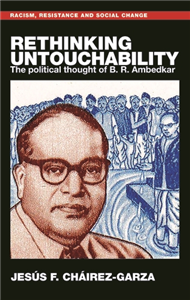Description
More Information
Rights Information
Albania, Algeria, Angola, Argentina, Armenia, Australia, Austria, Bahrain, Belgium, Belize, Benin, Bolivia, Bosnia and Herzegovina, Botswana, Brazil, Bulgaria, Burkina Faso, Burundi, Cameroon, Canada, Cape Verde, Central African Republic, Chad, Chile, China, Colombia, Comoros, Congo [DRC], Congo, Republic of the, Costa Rica, Ivory Coast, Croatia, Czech Republic, Denmark, Djibouti, Ecuador, Egypt, El Salvador, Equatorial Guinea, Eritrea, Estonia, Ethiopia, Faroe Islands, Finland, France, French Guiana, Gabon, Gambia, Georgia, Germany, Ghana, Greece, Guatemala, Guinea, Guinea-Bissau, Guyana, Honduras, Hongkong, Hungary, Iceland, India, Indonesia, Iran, Iraq, Ireland, Israel, Italy, Japan, Jordan, Kazakhstan, Kenya, Kuwait, Latvia, Lebanon, Lesotho, Liberia, Libya, Lithuania, Luxembourg, Macau, China, Macedonia [FYROM], Madagascar, Malawi, Malaysia, Mali, Malta, Mauritania, Mauritius, Mayotte, Mexico, Mongolia, Montenegro, Morocco, Mozambique, Namibia, Netherlands, New Zealand, Nicaragua, Niger, Nigeria, Norway, Oman, Pakistan, Panama, Paraguay, Peru, Philippines, Poland, Portugal, Puerto Rico, Qatar, Reunion, Romania, Russia, Rwanda, Saint Helena, Sao Tome and Principe, Saudi Arabia, Senegal, Serbia, Seychelles, Sierra Leone, Singapore, Slovakia, Slovenia, Somalia, South Africa, South Korea, Spain, Sri Lanka, Sudan, Suriname, Swaziland, Sweden, Switzerland, Syria, Taiwan, Tanzania, Thailand, Timor-Leste, Togo, Tokelau, Tunisia, Turkey, Uganda, Ukraine, United Arab Emirates, United Kingdom, United States, Uruguay, Venezuela, Vietnam, Western Sahara, Yemen, Zambia, Zimbabwe, South Sudan, Cyprus, Palestine, Bangladesh, Cambodia, Liechtenstein, Azerbaijan, Jamaica, Kyrgyzstan, Dominican Republic, Myanmar, Monaco
Endorsements
Redefining untouchability brings new light to the intellectual life of the B.R. Ambedkar, one of India's most important thinkers of the last century. Usually under the shadow of Indian nationalist such as Gandhi and Nehru, the importance of Ambedkar's political thought remains largely unexplored. Ambedkar's main concern throughout his life was the abolition of untouchability, which he fought throughout his writings and politics. Ambedkar's place in the history of Indian political thought is unique. Coming from one of the most oppressed communities in India, he received doctoral degrees from Columbia University and the London School of Economics. Similarly, Ambedkar familiarised himself with the newest anthropological, political and sociological theories emerging at the turn of the twentieth century. Influenced by the thought of Franz Boas and John Dewey, among others, Ambedkar showed his followers that their condition of oppression was fluid and malleable, it could be changed as it was not dependent on karma from previous lives. By analysing untouchability and its links to religion and ideologies of racial supremacy, Ambedkar exposed untouchability as an economic, political and cultural system designed to oppress Dalits. He demanded political and educational rights to bridge the inequalities present in the lives of his followers. For Ambedkar, India required a social and a political revolution beyond the scope of nationalist aspirations. At a time when inequality and injustice is still rampant in India and elsewhere, recovering the value of Ambedkar's thought is paramount.
Reviews
Redefining untouchability brings new light to the intellectual life of the B.R. Ambedkar, one of India's most important thinkers of the last century. Usually under the shadow of Indian nationalist such as Gandhi and Nehru, the importance of Ambedkar's political thought remains largely unexplored. Ambedkar's main concern throughout his life was the abolition of untouchability, which he fought throughout his writings and politics. Ambedkar's place in the history of Indian political thought is unique. Coming from one of the most oppressed communities in India, he received doctoral degrees from Columbia University and the London School of Economics. Similarly, Ambedkar familiarised himself with the newest anthropological, political and sociological theories emerging at the turn of the twentieth century. Influenced by the thought of Franz Boas and John Dewey, among others, Ambedkar showed his followers that their condition of oppression was fluid and malleable, it could be changed as it was not dependent on karma from previous lives. By analysing untouchability and its links to religion and ideologies of racial supremacy, Ambedkar exposed untouchability as an economic, political and cultural system designed to oppress Dalits. He demanded political and educational rights to bridge the inequalities present in the lives of his followers. For Ambedkar, India required a social and a political revolution beyond the scope of nationalist aspirations. At a time when inequality and injustice is still rampant in India and elsewhere, recovering the value of Ambedkar's thought is paramount.
Author Biography
Jesús F. Cháirez Garza is Lecturer of the History of Race and Ethnicity at the University of Manchester
Manchester University Press
Manchester University Press is a leading UK publisher known for excellent research in the humanities and social sciences.
View all titlesBibliographic Information
- Publisher Manchester University Press
- Publication Date March 2024
- Orginal LanguageEnglish
- ISBN/Identifier 9781526168726 / 1526168723
- Publication Country or regionUnited Kingdom
- FormatPrint PDF
- Pages264
- ReadershipGeneral/trade; College/higher education; Professional and scholarly
- Publish StatusPublished
- Dimensions234 X 156 mm
- Biblio NotesDerived from Proprietary 5776
- SeriesRacism, Resistance and Social Change
- Reference Code15189
Manchester University Press has chosen to review this offer before it proceeds.
You will receive an email update that will bring you back to complete the process.
You can also check the status in the My Offers area

Please wait while the payment is being prepared.
Do not close this window.



